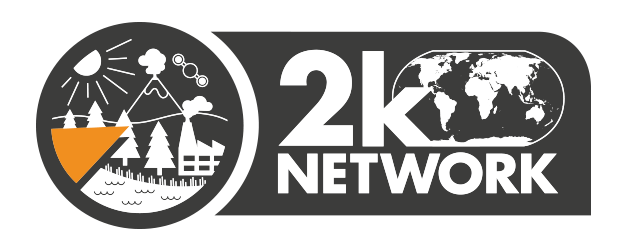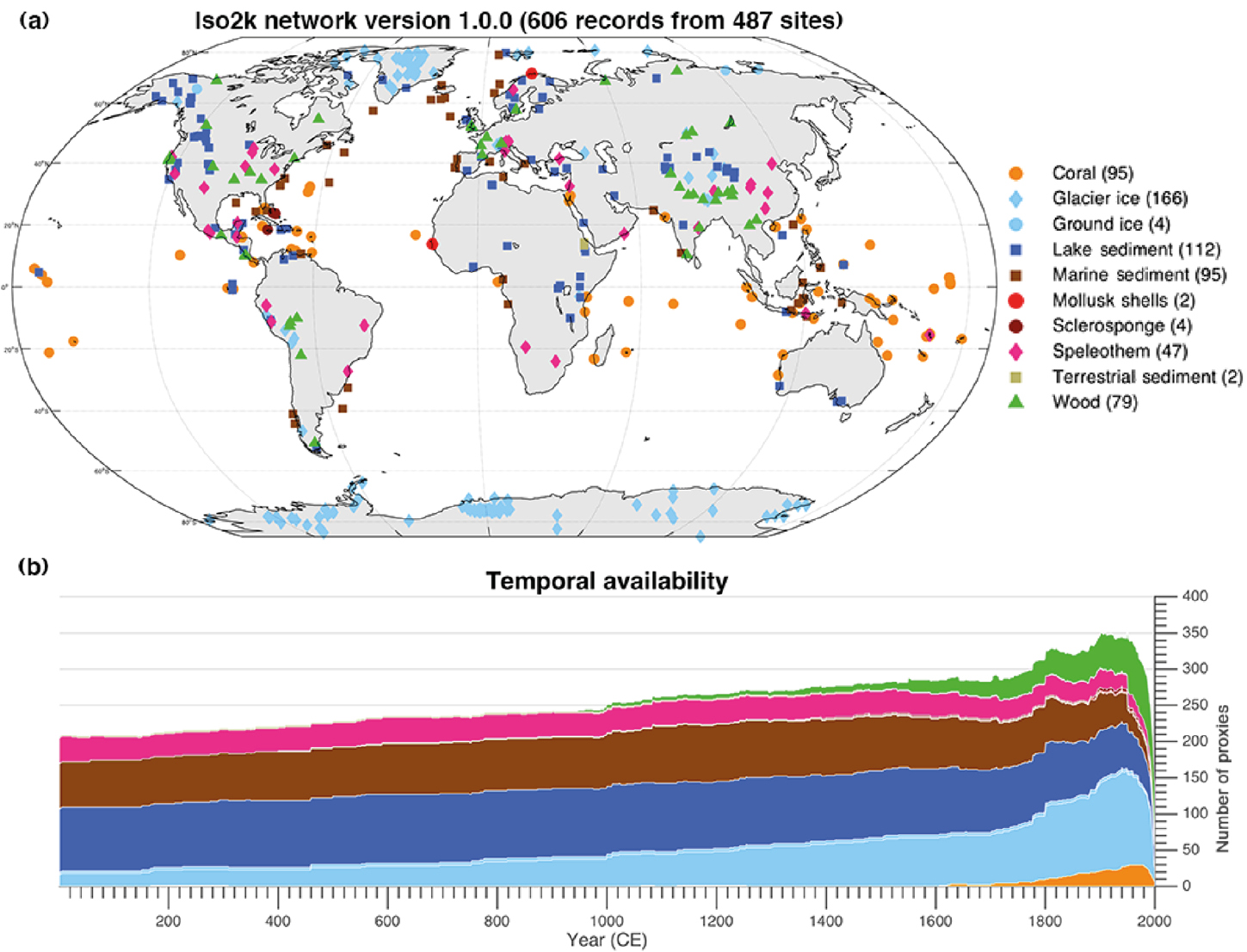- Home
- Publications
- PAGES Magazine
- PAGES 2k Network Community Survey
PAGES 2k Network community survey
PAGES 2k Network coordinators
Past Global Changes Magazine
28(2)
66
2020
PAGES 2k Network coordinators
Currently in its 13th year, the PAGES 2k Network (pastglobalchanges.org/2k) entered its third phase in 2017. This phase is scheduled to sunset at the end of 2021. In order to gather feedback, the coordinators surveyed current participants and the broader 2k Network community in June 2020. We are grateful to the 49 respondents who took the time to provide thoughtful feedback, including one of the original founders of the Network (self-identified).
Responses came largely from scientists who completed their PhD more than eight years ago (76%). Many respondents have been involved in one or more of the Phase 3 projects (ARAMATE, CLIM-ARCH-DATE, CLIVASH2k, CoralHydro2k, Global T CFR, GMST reconstructions, Iso2k, MULTICHRON, PALEOLINK, PSR2k; pastglobalchanges.org/science/wg/2k-network/projects) as a project member (29%), project coordinator (8%), contributor to database compilation efforts (33%), and/or manuscript co-author (31%).
Approximately half of all respondents, including those not directly involved in the working group, had used data provided by the projects and previous 2k Network efforts (45%). While some of the projects are still gaining momentum, others are in the process of disseminating their final results or have already concluded. The collective effort has been impressive; outputs have included comprehensive datasets (Fig. 1) and data-model comparisons, and several papers have already been published (e.g. Bracegirdle et al. 2019, Neukom et al. 2019, PAGES 2k Consortium 2019, Bothe and Zorita 2020, Konecky et al. 2020).
Survey respondents gave useful suggestions for improving the PAGES 2k Network and its coordination, including communication, via circulars or online meetings, as well as by enabling interested parties to more easily become involved with the ongoing efforts. The responses also highlight the importance of facilitating networking among participants at different career stages and in different geographical regions, as the network consists of a large number of both early-career researchers and more established scientists spread around the globe.
Looking forward to the scientific challenges that the PAGES 2k Network and the broader community should work to solve over the next five to 10 years, many respondents agreed that better data coverage is necessary, both spatially and temporally, in order to resolve greater detail. There was a call to extend the focus further back in time, such as the past 5000 years or as far back as the early Holocene. On the other side of the spectrum, some respondents suggested making the connection to future climate change more prominent. Others commented on the focus on temperature reconstructions and suggested expanding this to include hydroclimate or human–climate interactions. Development of new proxies and data-model integration were also identified as potential goals. As some of the projects of the PAGES 2k Network are creating databases, there was also concern about the future maintenance of these databases once the working group eventually sunsets.
Approximately half of the survey respondents were enthusiastic about a subsequent fourth phase (44%), while 46% felt that it was time to wrap up the working group and transition efforts to work on the challenges identified above. While no definite plans have yet been made, the coordinators are currently considering options for online events in 2021 as well as possibilities to reach out to the wider community in person at the PAGES Open Science Meeting in Agadir, Morocco, in May 2022. We hope to use this opportunity to provide networking opportunities, workshops, and/or a celebration of the past 13 years of this working group. Updates will be available at pastglobalchanges.org/calendar/upcoming/127-pages/2065.
Phase 3 of the PAGES 2k Network built on the strong foundation established during the preceding eight years; the success of the network is largely due to the enthusiasm and energy of the many scientists at all career stages who have contributed over this period. Regardless of the future of this working group, we hope to be able to pass on the expertise that has been accumulated, particularly in online community collaboration, to the next generation of paleoscientists and PAGES working groups.
Authors and affiliations
N.J. Abram (The Australian National University, Canberra, Australia)
O. Bothe (Helmholtz-Zentrum Geesthacht Centre for Materials and Coastal Research, Geesthacht, Germany)
S. Eggleston (PAGES International Project Office, Bern, Switzerland)
B.L. Konecky (Washington University, St. Louis, USA)
H.W. Linderholm (University of Gothenburg, Sweden)
B. Martrat (Institute of Environmental Assessment and Water Research IDAEA-CSIC, Barcelona, Spain)
H. McGregor (University of Wollongong, Australia)
S.J. Phipps (University of Tasmania, Hobart, Australia)
S. St. George (University of Minnesota, Minneapolis, USA)
contact
Sarah Eggleston: sarah.eggleston pages.unibe.ch
pages.unibe.ch
references
Bothe O, Zorita E (2020) Clim Past 16: 341-369
Bracegirdle TJ et al. (2019) Geosciences 9: 255
Konecky BL et al. (2020) Earth Syst Sci Data 12: 2261-2288

